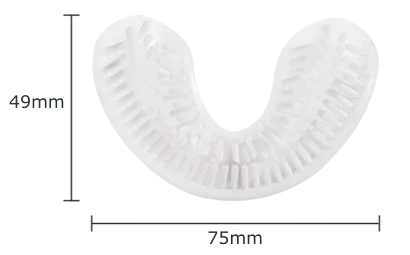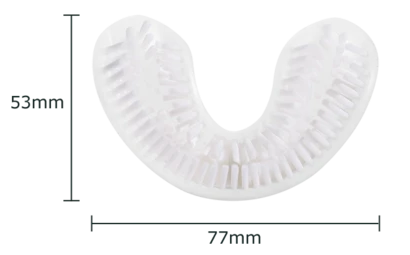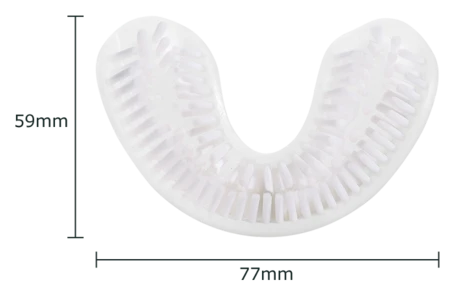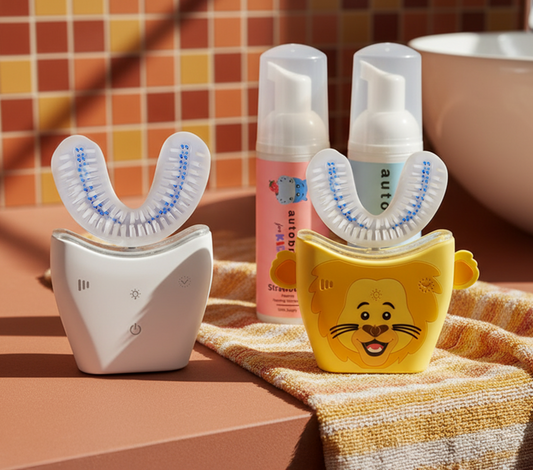
Am I Grinding My Teeth?
Grinding your teeth at night is more than just a bedtime annoyance; it can also signal a larger oral health issue. The medical term for teeth grinding is bruxism, and it's something that many people do without even realizing. The stakes are high as bruxism can lead to a variety of dental and health issues. But fret not; from understanding the symptoms to recommending the best oral care regimen, this blog has got you covered. Keep an eye for AutoBrush, your one-stop solution to conquer teeth grinding and boost your oral health.
How to Know If You're Grinding Your Teeth?
Most people who grind their teeth aren't aware of it because it often occurs during sleep. However, a sore jaw, headache, or your partner telling you about the annoying noise at night could be telltale signs. You may also find that your teeth are becoming increasingly sensitive or look visibly worn down. If you suspect that you’re grinding your teeth, it’s crucial to consult with your dentist. They can look for specific wear patterns or damage that can confirm the presence of bruxism.
Symptoms of Teeth Grinding
Here are some symptoms to look out for:
- Jaw Pain or Soreness: Waking up with jaw pain is a common symptom.
- Headaches: Morning headaches can be a result of the pressure exerted during teeth grinding.
- Worn Down Teeth: Over time, bruxism can lead to flattened, fractured, or chipped teeth.
- Sleep Disturbance: You or your partner may notice disturbances in sleep or loud grinding sounds.
- Tooth Sensitivity: Grinding can wear down the enamel, leading to sensitivity.
What Is Bruxism?
Bruxism is the technical term for grinding and clenching your teeth. This can happen while you're awake but is most commonly a sleep-related disorder. Bruxism can be caused by stress, anxiety, an abnormal bite, or even missing teeth. It can affect not only adults but also kids. Teeth grinding in kids is often related to dental issues like misaligned teeth or the emergence of new teeth.
How to Stop Grinding Teeth at Night?
Managing bruxism involves tackling the root causes and taking preventative measures. Behavioral therapies, stress management, and sometimes even dental procedures may be required. Mouthguards are also effective in reducing grinding. But, one of the most straightforward methods is to follow a robust oral care routine.
AutoBrush: The Best Oral Care
When it comes to best practices in oral care to prevent teeth grinding, AutoBrush is unmatched. AutoBrush provides a comprehensive cleaning that not only enhances the strength of your teeth but also helps in identifying problematic areas that might be susceptible to grinding.
The AutoBrush is engineered to provide 360-degree coverage of your teeth, ensuring that no area is left untouched, potentially reducing the need for excessive grinding or clenching due to plaque or debris.
Why Choose AutoBrush?
- 360-Degree Cleaning: All-around cleaning to ensure complete oral hygiene.
- Customized Routines: Personalize your cleaning and relaxation routine.
- Dentist-Recommended: Adopted by professionals for its thorough cleaning ability.
Best Practices in Oral Care
- Regular Checkups: Regular dental checkups are vital for catching symptoms early.
- Oral Hygiene: Consistency is the key. Stick to your AutoBrush regimen for the best results.
- Mindful Relaxation: Remember to unclench your jaw during the day and practice stress-relief techniques.
- Stay Hydrated: Drink plenty of water to keep the tissues in your mouth hydrated.
Final Thoughts
Teeth grinding is not just an annoying habit; it's a sign that something's not right. From identifying the symptoms of bruxism to understanding how to stop grinding your teeth at night, awareness is the first step to treatment. AutoBrush offers a proven solution for maintaining optimal oral health, which can be a significant step in reducing teeth grinding.
So, if you find yourself wondering, "Am I grinding my teeth?", take action today. Opt for AutoBrush for top-notch oral care, and say goodbye to bruxism for good.















